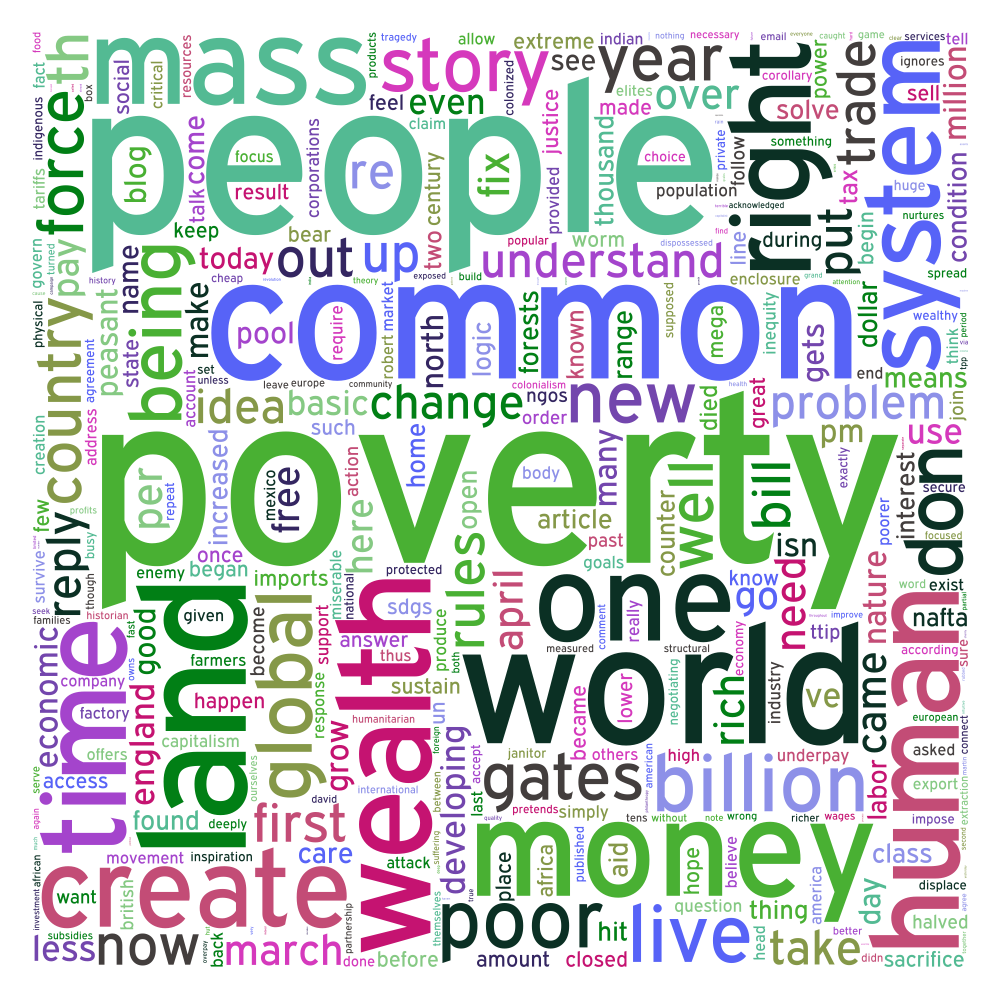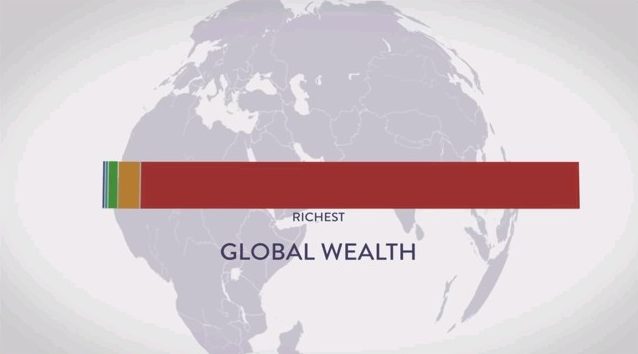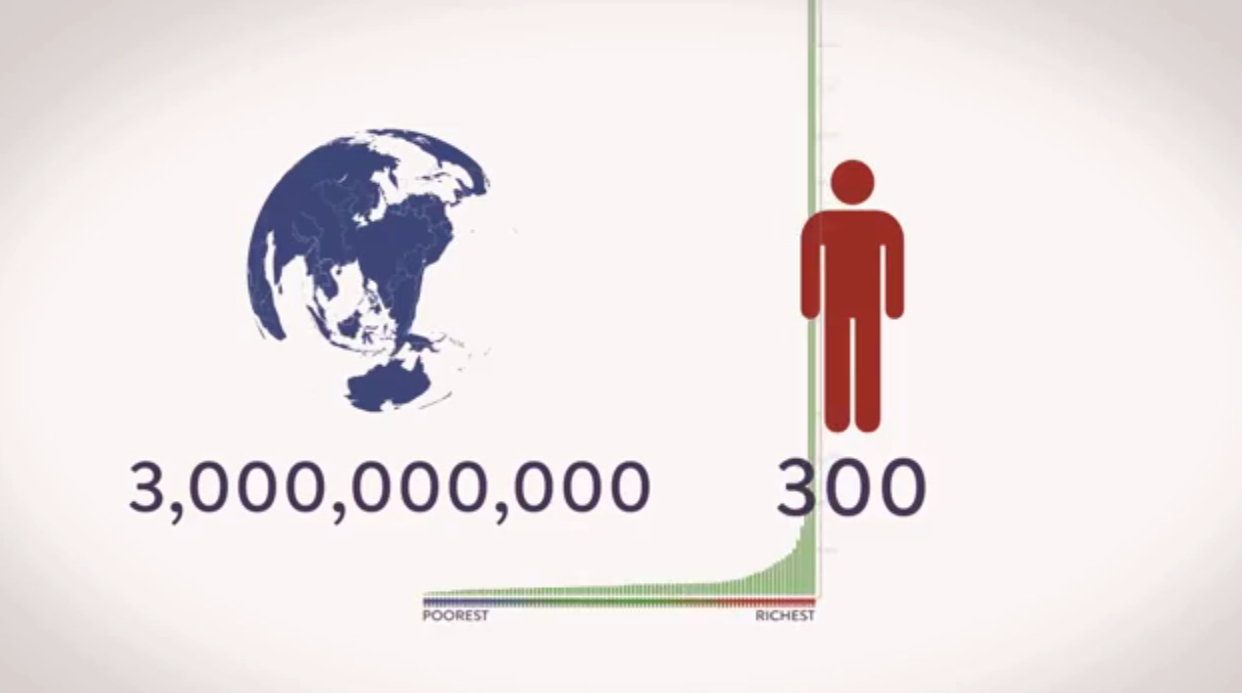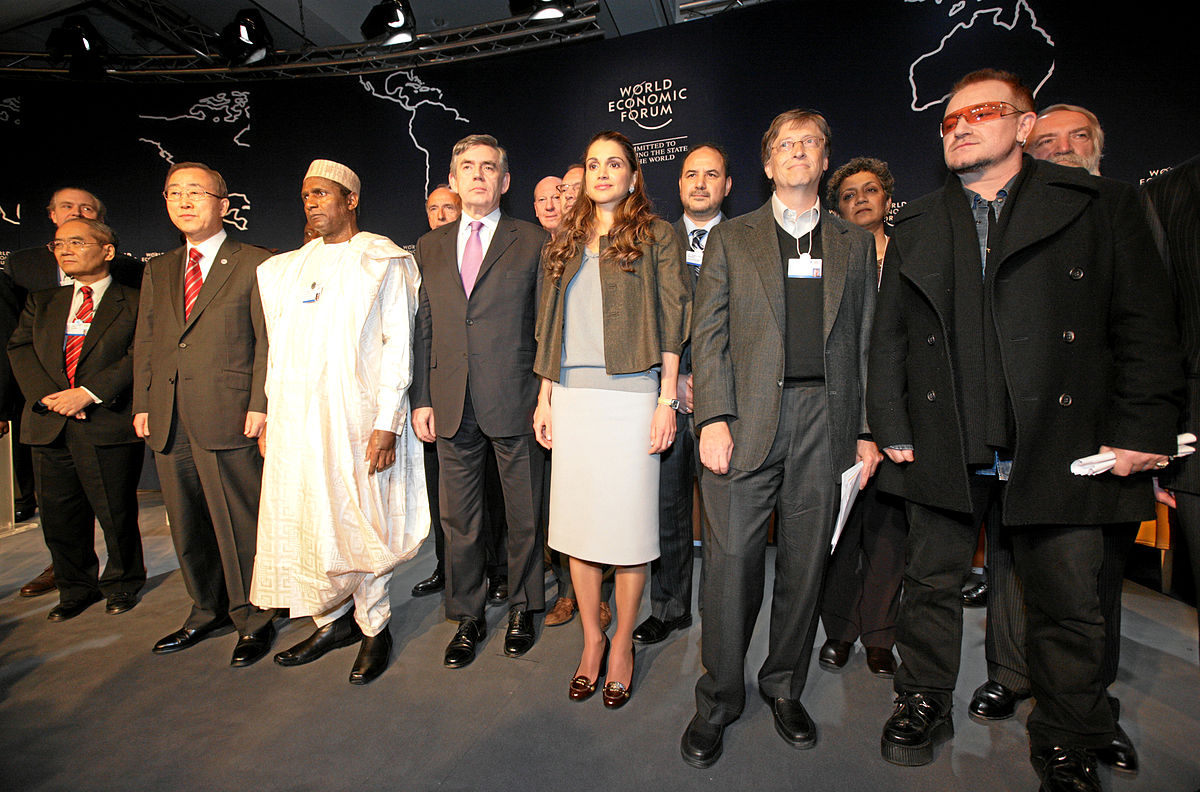
PovertyDiscourse
We know that many people in the UK misunderstand poverty and development: there’s reams of evidence on that. But there are interesting lessons to be had when we look at what it is that they actually think. For example: the idea that Oxfam run orphanages, something that surfaced when Oxfam CEO Mark Goldring recently appeared on an episode of Undercover Boss. While this sort of misplaced belief might seem trivial, it exposes a far bigger problem than a simple case of misinformation.
First, let’s think about why it is that people might hold this belief. I worked for Oxfam for many years, and I never saw anything about orphanages in public communications, so it seems a strange belief to be common. Of all the possible things people could envision, not to mention all the many things Oxfam actually does and talks quite loudly about, why orphanages? The reason it appears in people’s heads is that it follows logically from their understanding of poverty and of Oxfam.
This is because of the way we process information. To make sense of any given situation, our brains tend to fill in any gaps in what we know with what feels logical and compatible. For example, if you’re walking down the street and hear a siren, before you have any time for conscious thought and without any additional evidence, your brain will have connected the sound with what it considered most likely, given previous knowledge and how it understands the world to work. In this case, probably a police car. This is how “common sense” works.
The fact that people take what they think about Oxfam and poverty and find it “common sense” to link that to what they know about orphanages shows what they think the business of Oxfam and the business of fighting poverty, is all about.
At the heart of this “common sense” is the moral order frame; a belief that the world is naturally made up of hierarchies, and that these hierarchies have an inherent moral dimension; those at the top deserve to be where they are, as do those at the bottom . Orphanages represent a pretty extreme form of this because they are symbols of the classic relationship between vulnerable helpless people – children, even! – in need, and their powerful heroic, parent-like benefactors. This explains why this is problem which can’t be fixed by just giving them another example of rich white folk saving poor, (mostly) black victims: It’s the same deep frame.
So, the best you can hope for when Mark Goldring is seen on TV building latrines is that people who thought “Oxfam? They do orphanages, right?” before seeing the programme now just think “Oxfam? They do orphanages and latrines, right?” The fact that people liked watching it and felt that they got a better sense of Oxfam’s disaster response is neither here nor there: that’s judging Oxfam as you would just a soap powder, in terms of marketing ratings. But Oxfam – and other development NGOs – have to be be concerned about more than their ‘market ratings’ because their promise – ending poverty – can’t be achieved by selling more stuff. They all know that, which is why they have campaigns and policy departments. So, by their own logic they must be better and more sophisticated than that if they want to honour their own rhetoric.
What makes this even worse is that fact that it plays directly into the dominant and powerful creation story that exists, in which the root of individual poverty is reduced to a simplistic explanation of laziness and moral irresponsibility or regrettable but natural and therefore acceptable misfortune. Development NGOs have a duty to re-write this, and the first essential step is stop fuelling it.
To put things very simply, NGOs either need to stop using the language of overcoming poverty or ending poverty and stick exclusively to humanitarian response language, or they need to dramatically change their business model and get away from charity with its toxic moral order.
But how?
Here are some ideas…
- Never start your story inside the development frame.
- Focus on establishing a creation story for poverty in everything you say.
- Make frame and narrative promotion a first principle in campaign design.
- Avoid using any imagery of people passive, helpless, suffering victims.
- Don’t be put off by criticism and never enter the frame of the opposition, even if you think you are doing so to deny it.
- Be political.
- Avoid overselling at all costs.
1. Never start your story inside the development frame
It is the logic of charity: it puts your mind in the place of choosing between which poor people – e.g. pot bellied poor children in generic African villages or elderly poor people in India – are more worthy of the help of the generous and morally superior rich. That is the calculation invoked, and it is the logic, or at least an essential bit of it, behind that most craven but popular argument against foreign aid, “charity begins at home”. A far better frame to start from would be the Occupy 1%/99% frame. That puts you and your audience’s mind in the place of contrasting the super rich with the rest of us, including the impoverished, who are now our in-group rather than a distant “other”. It invokes the vast inequalities inherent in the system, and starts the story with that truth in mind. Literally, imagine yourself on a platform in Zucotti Park in New York, explaining to a willing crowd how Wall Street is complicit in creating global inequality. What phrases would you use? What logic would you invoke? It’s a more more powerful and relevant starting point if you want people to support political change.
2. Focus on establishing a creation story for poverty in everything you say
Mass poverty is not natural, it doesn’t happen by accident. We humans long since passed the point where we could say, “it wasn’t us”. There are actors who are making decisions – consciously or otherwise – that create or contribute to it. We need to name them, all the time. The other side have control of this idea right now, and name who they blame all the time – poor people themselves (a feature of the moral order frame). The discourse is drenched in it.
In practice this means always using active not passive sentence constructions. Never say “half a million children are living in poverty.” That obscures the cause and the only actor is the “victim”. Far better to say, “The government (or your campaign target) is helping keep half a million children in poverty”. That does two things – it makes it an active process, therefore something that can be altered rather than a “just the way it is” fact of nature that must be lived with. Secondly, in the mind of the reader, it activates a scenario in which there are real agents at work. People engage much more in ideas when they can literally imagine things happening. People doing things. A story unfolding. This is essential if you want to stimulate an emotional and morality based reaction.
3. Make frame and narrative promotion a first principle in campaign design
At /The Rules, we’re currently running a campaign that targets the World Bank’s Doing Business rankings. The top reason we chose them as a target was because of how they articulate the bigger story about the Bank’s pro-corporate anti-smallholder, family farmer development paradigm. That narrative power was the reason we went with them, and the policy considerations were a distant second. Obviously we needed to be comfortable with the policy and are partnering with a think tank to make sure we a very tight on that front, but for our purposes, that was most definitely a secondary consideration.
4. Avoid using any imagery of people passive or as suffering victims
Use imagery of people fighting back against injustice, working hard. Being the agents in their own lives, just as we all are. Our job is to demonstrate and promote ideas of solidarity between equals and so frames of victims and saviours – in language, imagery, whatever – as the poison; the polar opposite of solidarity. The Rusty Radiator Awards are an excellent showcase of exactly what we desperately need be moving away from. There are also lots of good, positive examples of new ways of thinking. Kickstarter, and indeed the whole concept of crowdfunding, is powerful because it starts from the logic of networks, which are horizontal structures and therefore negate the idea of the moral hierarchy. Of course, in the wrong hands, such tools can be polluted by charity logic, and as long as charity is such a dominant idea in this area, great care needs to be taken to not let that happen. But they do offer a glimpse of the very rich territory that can be explored, where the presumption is that people are equal for the purposes of the job at hand.
5. Don’t be put off by criticism and never enter the frame of the opposition, even if you think you are doing so to deny it
Our number one job as campaigners is to establish and strengthen our frames through creative expression and constant and disciplined repetition. This is a much more efficient strategy with the media and supporters than getting into a head-on logical battles or trying to refute or challenge the logic of those who are on the other side of the debate. Let the detail be fought over in lobby meetings. So if, for instance, we get accused or promoting the politics of envy thrown, our default reaction should be to ignore it and repeat our own frame. The audience aren’t assessing the issues from a point of pure rationality, with all the best information at their disposal, and then applying values and emotions; they start with values and emotions and then select information that supports what feels to them like “common sense”. So we must establish the moral and emotional “common sense”, and use the rational or logical case as the flesh on the bones of that argument.
6. Be political
Not party political – no one wants (or needs) to run up against the Charity Commission – but political in the sense of never letting the audience forget this is primarily a question of humans in power making better, more just, less self-centric decisions. It’s not the world battling this nasty but natural problem. It’s us trying to alter the political economy that creates the problems in the first place. A political economy that has plenty of champions to target. This might mean making some tough choices. People feeling better about second hand clothes or even recycling can in fact actively depoliticise the real issues and oversell their impact: unless seen in the proper logical context, they are actually actively problematic. And right now, the only safe assumption is that the proper context is missing.
7. Avoid overselling at all costs
Never promise more than a donation or action can achieve. Be optimistic, by all means. But always, ALWAYS, be realistic. Anything more is deeply disempowering over the medium-long term.
I hate to say it, because some of my best friends are fundraisers, but unless they extract themselves from the charity frame they should be considered the most toxic opposition to commensurate action on inequality and climate change.
This blog was originally published by CommonCause here.









Journal of Neurotherapy, 5 (1-2), 73-86.